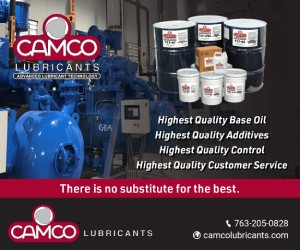Learning the Most Important Lessons

Likely, we can all admit that we have learned from past experiences both good and not so good, which have shaped the course of our lives. Working in industrial refrigeration for me started long before I even knew what refrigeration was, besides being cold. Maybe like many of you, you had similar thoughts on where your future might lay – I wanted to be an astronaut, a fireman, a forest ranger, a truck driver, a football star, etc. While I was this young dreamer, my dad would often take me to his workplace and I’d help some, and play some, as I was exposed to the world of welders, torches, heavy pipes and valves, and big noisy machines. I honestly didn’t think about what I was experiencing or learning.
Growing up I often worked at the shop after school, cleaning, and also learning how to use a torch, a welder, and many other tools to both remove and build parts of refrigeration systems. During the summers I sometimes went on trips to big smelly refrigeration processing and storage facilities, and even up into Alaska to even smellier fish processing plants. I still didn’t think much about all the experiences I was having, nor the things I was learning.
Graduating from high school I started thinking, what is it I would like to do? I didn’t know, but I enrolled in a local college and started taking basic required courses. Maybe something would “click” or “fall in my lap” giving me future direction, I thought. During this time I continued helping in the shop and on various large and small refrigeration projects to earn money to pay for college, buy a car, and just have fun. At the time I didn’t realize my “lap” was already filled with amazing opportunities in industrial refrigeration.
I graduated from college with a degree that was interesting, but in a field that was extremely difficult to find employment. My wandering path finally lead to the thought, “What about engineering and industrial refrigeration?” I went back to college and graduated (again) with a degree in mechanical engineering.
I am sure many of us have similar stories that have led us into the field of industrial refrigeration as we became engineers, contractors, manufacturers, salesmen, etc. As we each look back on our journey and the many opportunities we have had, and the experiences and lessons we have learned, I think it’s clear that this really is an amazing field to be in, but our journey is not over.
What more can we do? You can share the lessons you have learned, the experiences and the knowledge you have gained. Obviously, participating in industry organizations like IIAR, RETA, ASHRAE can help you, as well as others. Your input by participating on committees, reviewing of developing Standards and other bulletins/documents, sharing of experience and knowledge by participating in workshops or giving a technical paper. All of these activities are extremely important. We each set an example in our participation that can inspire others to become involved, and to gain additional knowledge and understanding.
Refrigeration is critical to our society, to our health and wellness. This technology provides us with lifestyle possibilities that didn’t exist 150 years ago. As a person involved in industrial refrigeration, how can you help others better understand refrigeration as well as realize how safe this industry is due to the design, codes, and standards that have been developed to provide guidance in construction, operation, and maintenance of systems and equipment?
One sure way do this is to become very familiar with the IIAR suite of standards. These standards are:
ANSI/IIAR Standard 1-2012 American National Standard for Definitions and Terminology Used in IIAR Standards
ANSI/IIAR 2-2014 American National Standard the Safe Design of Closed-Circuit Ammonia Refrigeration Systems
ANSI/IIAR Standard 3-2012 American National Standard for Ammonia Refrigeration Valves ANSI/IIAR Standard 4-2015 Installation of Closed-Circuit Ammonia Refrigeration Systems
ANSI/IIAR Standard 5-2013 Start-up and Commissioning of Closed-Circuit Ammonia Refrigeration Systems IIAR 6 (In the ANSI development/review process)
Working Title: Inspection, Testing, and Maintenance of Closed-Circuit Ammonia Refrigeration Systems
ANSI/IIAR Standard 7-2013 Developing Operating Procedures for Closed-Circuit Ammonia Mechanical Refrigerating Systems
ANSI/IIAR Standard 8-2015 Decommissioning of Closed-Circuit Ammonia Refrigeration Systems
IIAR 9 (In the ANSI development/review process)
Working Title: Recognized and Generally Accepted Good Engineering Practices (RAGAGEP) Standard for ClosedCircuit Ammonia Refrigeration Systems
What more can we do? Sometime ago, for example, I was asked to give a presentation on industrial ammonia refrigeration at a regional ASHRAE meeting. I also did a webinar on the same topic, and later gave a tour of two ammonia refrigeration systems. Most of the people who attended these presentations had no idea of what was involved in the design, construction, or maintenance of these types of systems. To them the systems seem complex and complicated.
Besides being involved as I mentioned above and studying our industry’s standards, you can also take the opportunity to talk to people both older and younger about our field of industrial refrigeration. Let them know of the wide variety of opportunities in this field. Many may be like myself, as I was growing up, and not realize how important, as well as interesting this field is. We all have lessons we have learned. Share those lessons and we all can improve.















